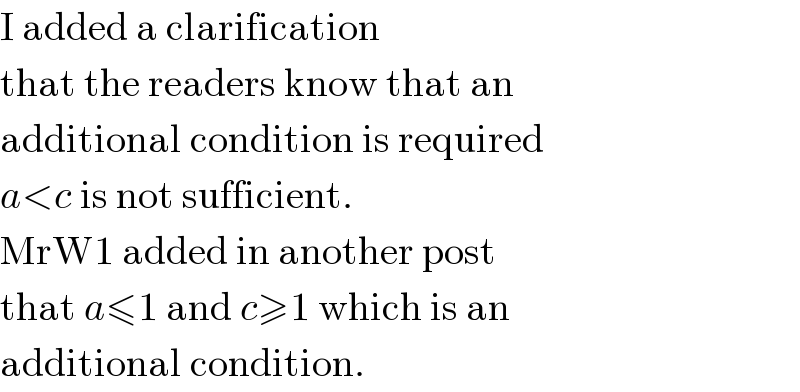
Question and Answers Forum
Question Number 13236 by Abbas-Nahi last updated on 17/May/17
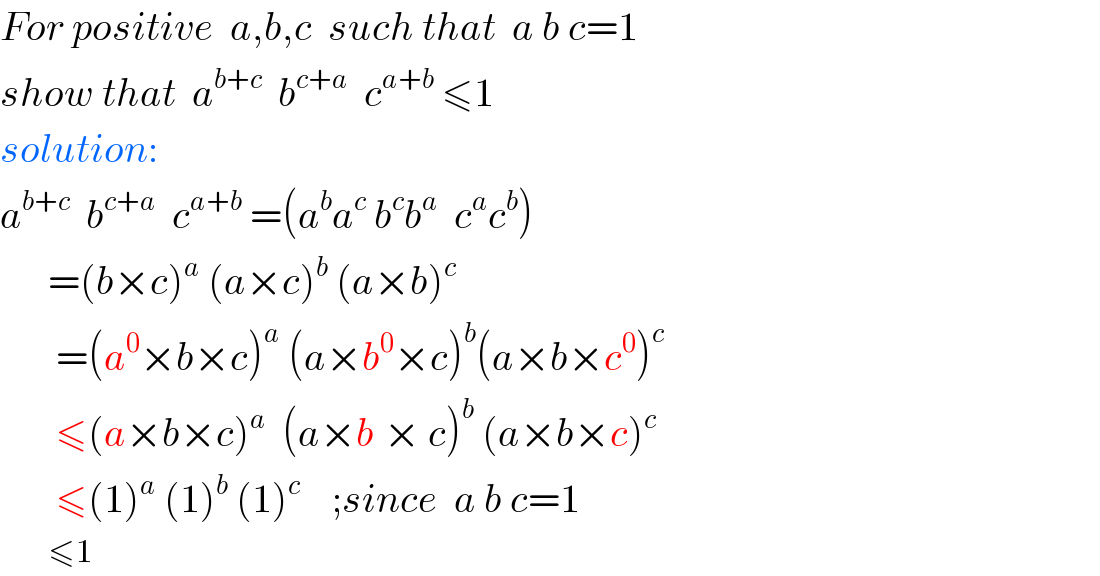
Commented by RasheedSindhi last updated on 17/May/17
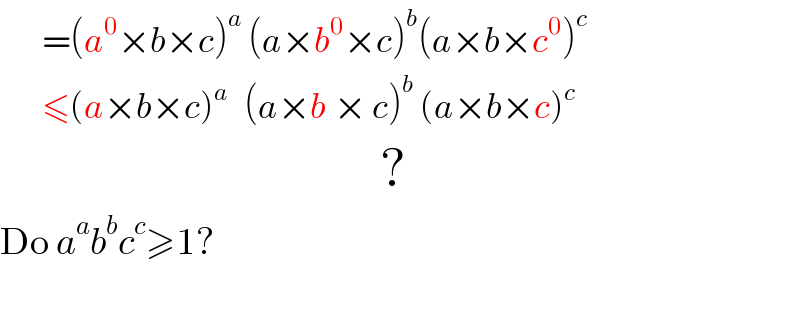
Commented by mrW1 last updated on 17/May/17
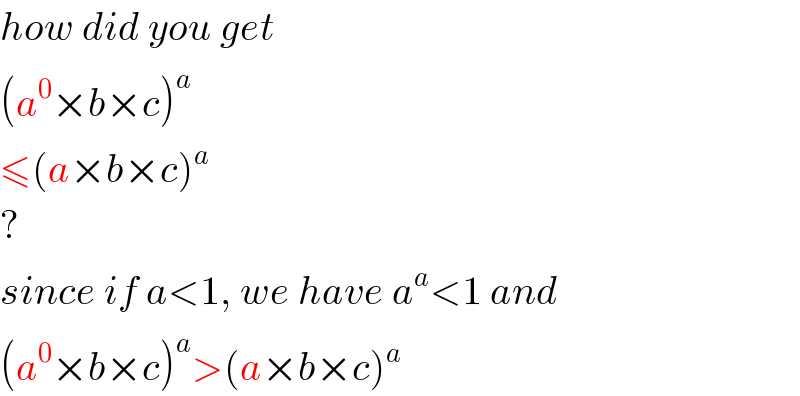
Commented by Tinkutara last updated on 17/May/17
![Yes, your solution is incorrect. Please check it. I now found a better solution. From the given expression a^(b+c) b^(c+a) c^(a+b) = a^(b+c) ((1/(ac)))^(c+a) c^(a+b) [∵ abc = 1] = a^(b+c) a^(−(c+a)) c^(−(c+a)) c^(a+b) = (a^(b+c−c−a) /c^(c+a−a−b) ) = (a^(b−a) /c^(c−b) ) . We can assume that a < b < c as the equation is symmetric. So the numbers are positive and raised to positive powers. So the denominator is greater than the numerator. Hence the above expression is ≤ 1.](Q13248.png)
Commented by RasheedSindhi last updated on 17/May/17
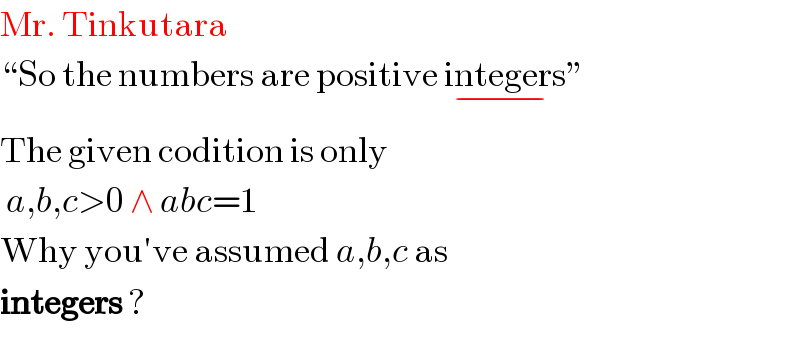
Commented by Abbas-Nahi last updated on 17/May/17

Commented by Abbas-Nahi last updated on 17/May/17

Commented by Abbas-Nahi last updated on 17/May/17
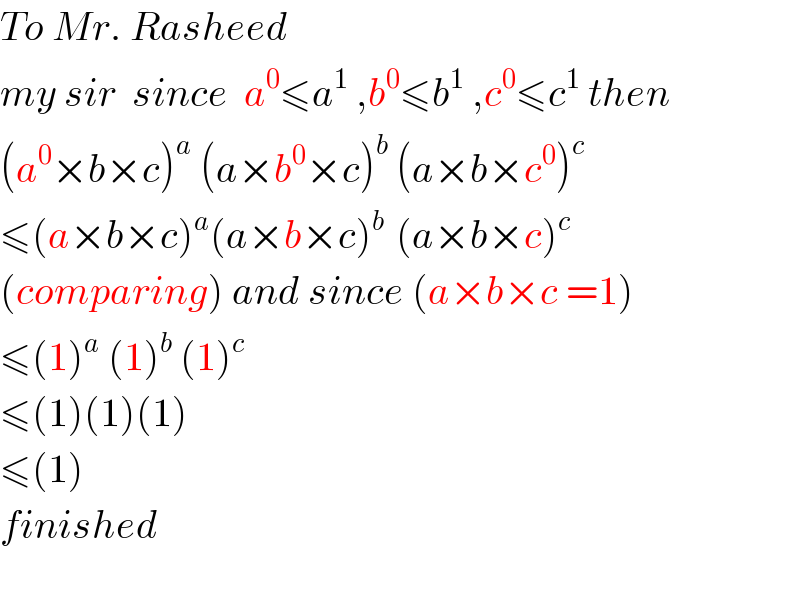
Commented by RasheedSindhi last updated on 19/May/17
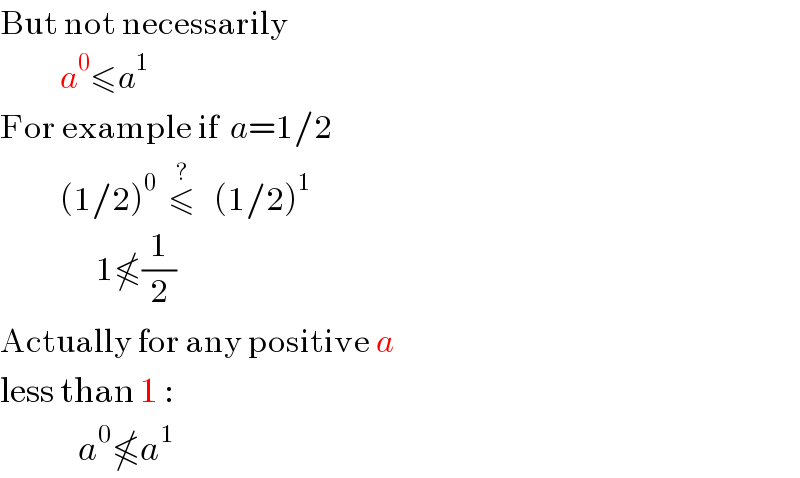
Commented by Abbas-Nahi last updated on 17/May/17

Commented by mrW1 last updated on 17/May/17

Commented by Tinkutara last updated on 17/May/17

Commented by RasheedSindhi last updated on 17/May/17
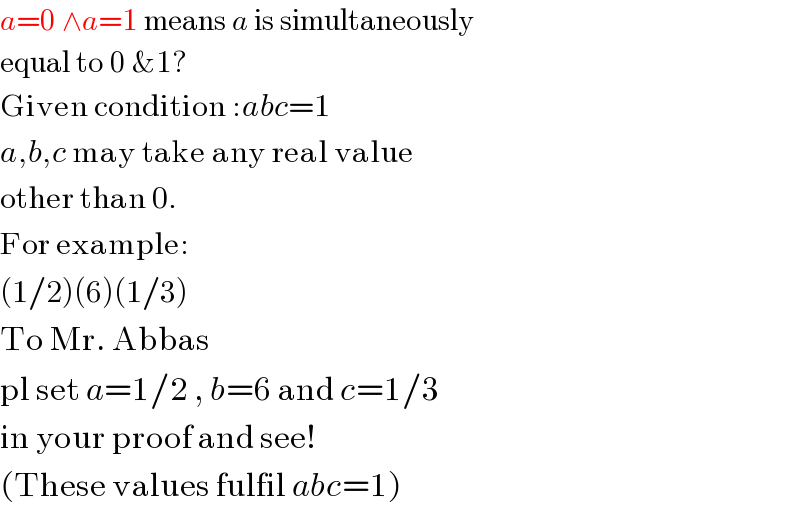
Commented by Tinkutara last updated on 17/May/17

Commented by prakash jain last updated on 18/May/17
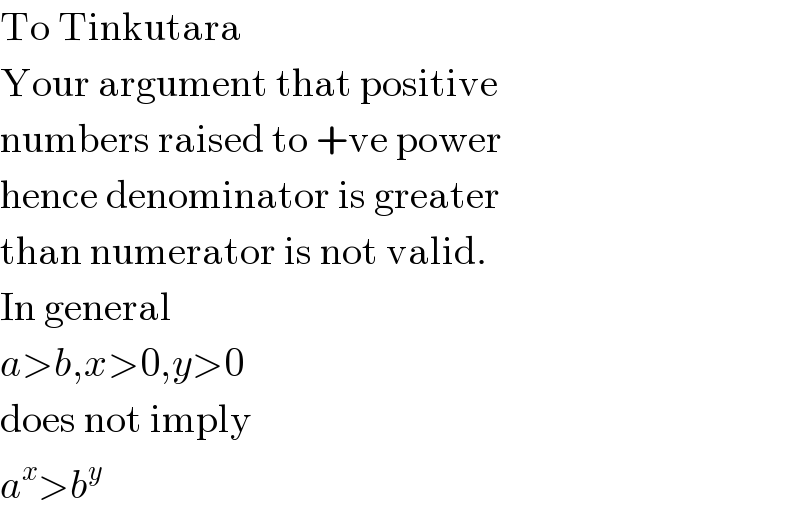
Commented by Tinkutara last updated on 19/May/17

Commented by prakash jain last updated on 19/May/17
